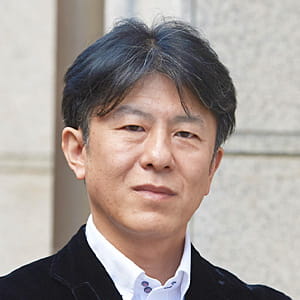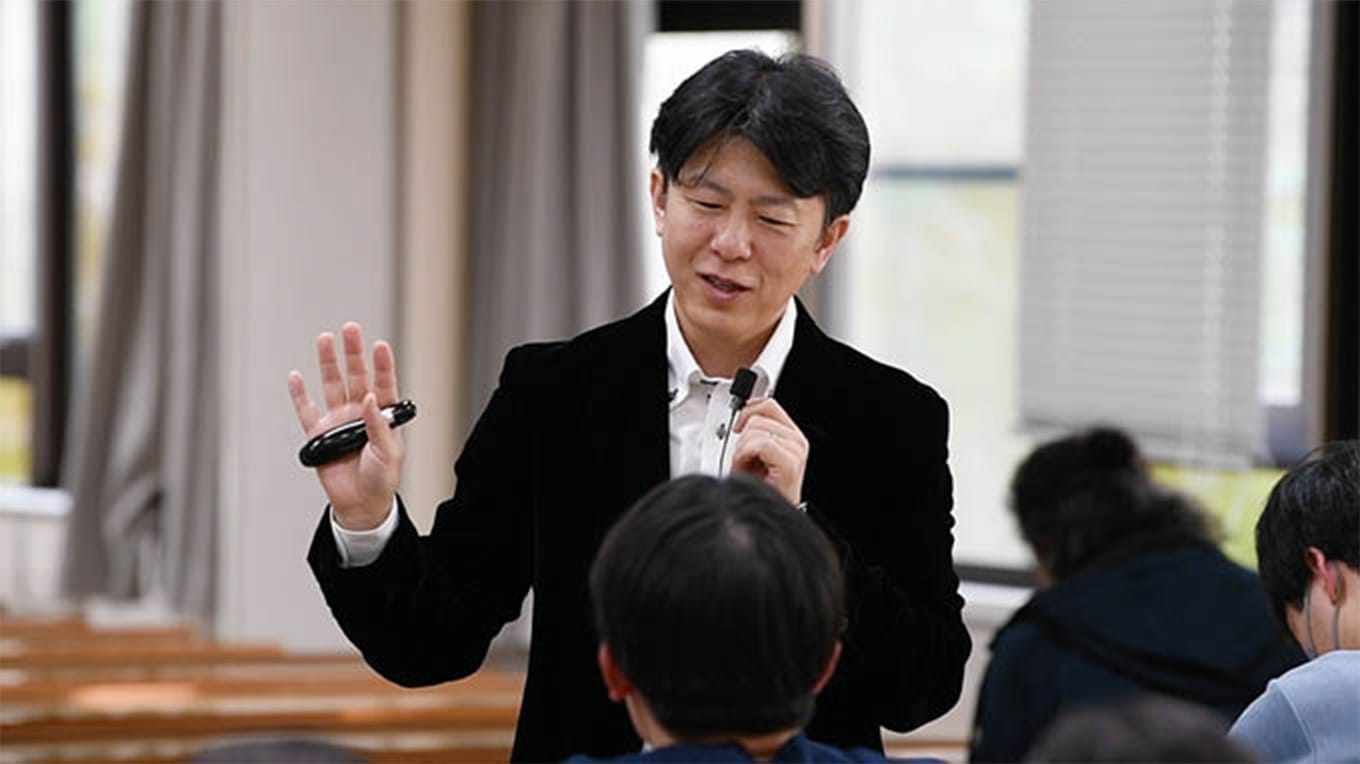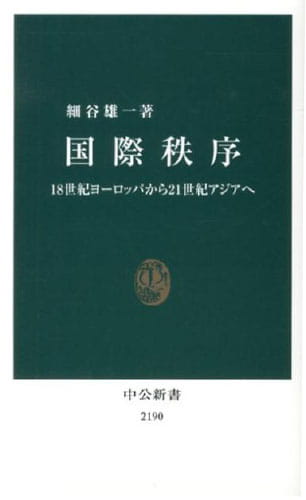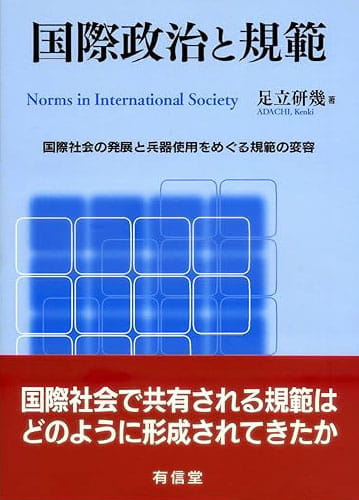International Politics
Can We “Eliminate War?”
Study the Field of International Politics with the Hope

ADACHI KenkiProfessor, College of International Relations
When do people start wars?
Clarifying the mechanisms of war and applying them
to the development of systems.
Can international relations, as a field of study, contribute to the “elimination of war?”
AdachiMy field of study, international politics, emerged as a branch of learning after humankind experienced World War I, as a method of ascertaining ways to avoid repeating such a tragedy. If you are exposed to tragic reports on a daily basis, such as Russia’s invasion of Ukraine and the conflict between Israel and Palestine, you may tend to have a pessimistic view of global affairs. However, when you look at the world as a whole, the number of casualties per capita due to armed conflict has dropped significantly, to less than 1/10 of what it once was. Findings made through the study of international politics are steadily contributing to making the world a better place. First and foremost, I want you to know this and have hope.
What sort of research do you do in your efforts toward the “elimination of war?”
AdachiOne thing is the research of the mechanisms by which wars occur. The idea is to analyze when countries go to war and when they do not, to clarify the mechanisms behind the wars, and to use that knowledge to create systems designed to prevent wars.
Another field is the study of the spread of norms. This research leads us to an examination of human nature. Consider this. There is a rich man who lives quietly in the mountains, and you are the only one who knows about his existence. Even if you kill the man and take his property, you will not be caught by the police. However, in this situation, most people would not kill him. This is because human beings possess standards of conduct that tell us, “This sort of behavior is not acceptable.”
The same applies to countries. No nuclear weapons have been used in any war since World War II. The use of nuclear weapons would be more cost-effective than a series of straightforward diplomatic efforts. And there is no equivalent to a police force on a global scale. Even so, they have not been used because countries also possess standards of conduct that tell them, “This sort of behavior is not acceptable.” These are called “norms” in the field of international politics. I analyze past events to understand when and what kinds of norms have emerged and which ones continue to be followed.
For example, since the 1990s, the international community has come to share the norm of rejecting the use of not only nuclear weapons but also chemical weapons, landmines, and other inhumane weapons. While these weapons were quite cost-effective, there was something to be reckoned with in terms of their cruelty and the excessive amount of damage they caused. For this reason, with NGOs and public opinion on their side, countries aware of the issue launched campaigns resulting in a treaty, signed by many nations, banning the use of such weapons. There are success stories that show how the idea that “this sort of behavior is not acceptable” can spread around the world, leading to a change in the international community and the state of order.

We were able to eliminate slavery.
I want the norm that “war is bad” to be shared around the world.
That sounds very hopeful.
AdachiIt does. Slavery was commonplace until the 19th century, but the world changed as a result of the spread of the idea that “people should not be treated as goods.” It is also important to consider what conditions will lead to the spread of new norms and under what circumstances there will be greater resistance to upholding old norms. This research theme represents the frontier in the study of international politics.
I believe that it is important for people in the international community to communicate with one another and increase trust. If we continue communicating, despite having different languages and cultures, we should be able to empathize with each other as human beings. It seems to me that by doing this, various norms will spread. Along with my colleagues in an international research group, we are examining how the norm that “war is bad” can ultimately be shared and adhered to around the world.
What kinds of things do people interested in subjects such as this need to study?
AdachiTalking about ideals won’t eliminate wars. It is necessary to first understand the current balance of military strength and fighting capabilities of each country and then cogitate why current wars have transpired. Regardless of what awakened your interest—be it war, weapons, or an interest in a specific region, etc.—as you become deeply immersed in your studies, you will inevitably face the question, “What are human beings?” If you possess an attitude that compels you to continually contemplate why things happen and what can be done about them, I believe that you can get to the essence of the study of international politics.

If you can understand human behavioral patterns and
have the ability to put things into context,
you will come to see the “why?” behind complex matters.
Please tell us about your seminar.
Adachi We are trying to determine how nations may work together and avoid going to war. The seminar’s core activities entail, as a group, gaining an understanding of theories through the reading of literature, each individual delving into a topic that interests them, and deciphering the mechanisms behind that topic in the context of the real world. Various topics are covered, including the global warming, food security, Japan-China relations, the Middle Eastern international relations, and more. I think that after studying a wide range of subjects in the College of International Relations, subsequent to taking on your own theme, there will come a moment when all of the things that you have learned and thought were unconnected will come together.
There are many complex matters in this world. But if you come to understand the behavioral patterns of human beings and nations, as well as the backdrop of those matters, you will begin to see why a war occurred and why a negotiation was successful.
We also conduct mock negotiations. In the simulated negotiations, an actual past issue is chosen as the theme, and seminar students play the roles of cabinet ministers, negotiation delegates, ambassadors, etc. from various countries. By standing in the shoes of someone in that position, you come to see that it is not simply a matter of winning or losing, but that sometimes conceding a little in an agreement may be the best decision, thereby deepening your understanding of human nature.
I would be happy if students’ motivation for learning could be, “I want to make the world a better place.”
For Those Interested in International Politics: BOOKS
中西 寛、石田 淳、田所 昌幸
国際政治学
有斐閣(2013年)

細谷 雄一
国際秩序―18世紀ヨーロッパから21世紀アジアへ
中公新書(2012年)

ADACHI Kenki
国際政治と規範:
国際社会の発展と兵器使用をめぐる規範の変容
有信堂(2015年)

For Those Interested in International Politics: FILMS
映画
博士の異常な愛情
スタンリー・キューブリック監督/イギリス、アメリカ(1964年)
映画
13 days
ロジャー・ドナルドソン監督/アメリカ(2000年)